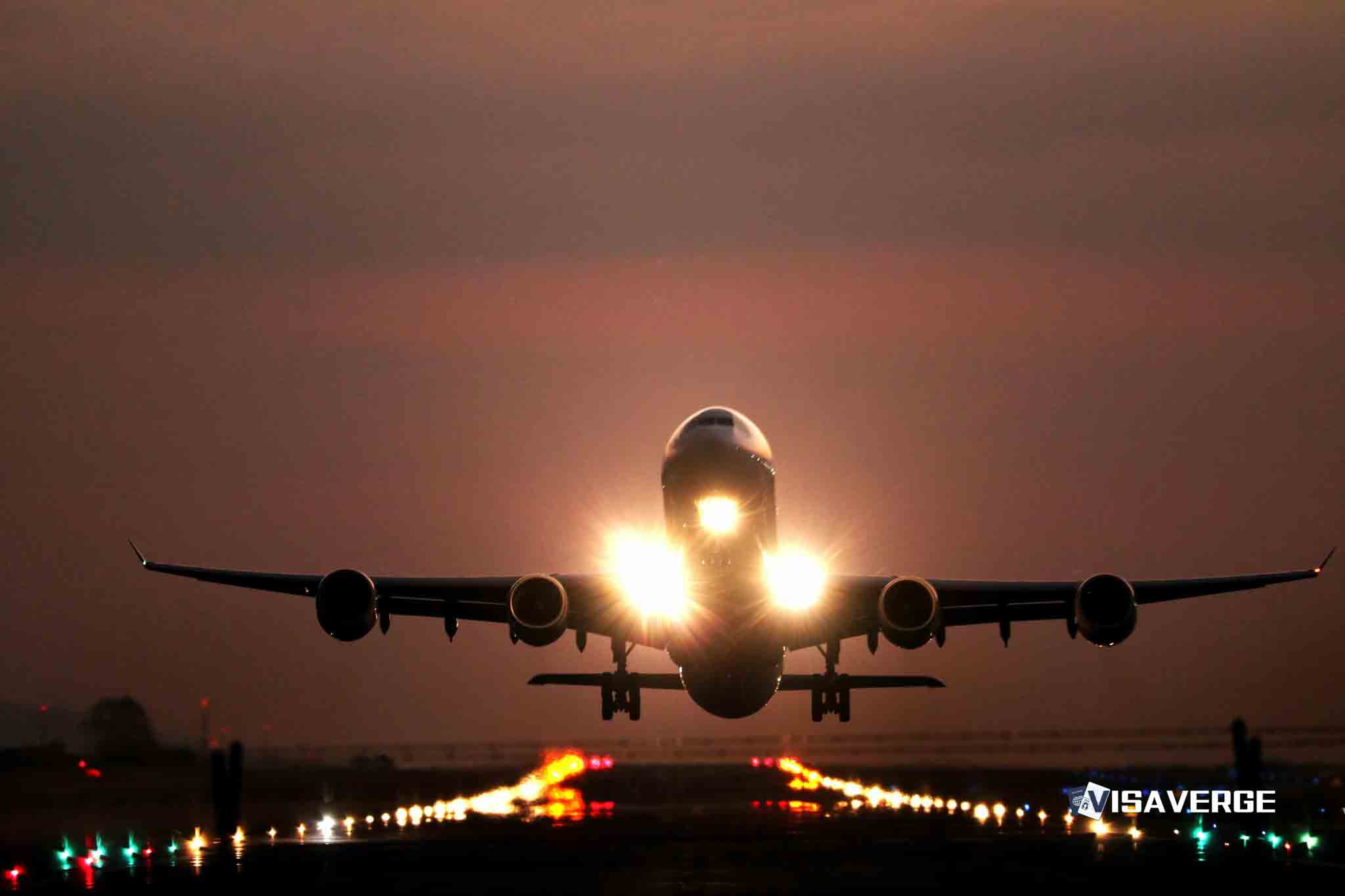(UNITED STATES) As of August 26, 2025, no U.S. airlines fly the Airbus A340, and none have orders in the pipeline. Industry executives and public records point to a mix of history, regulation, and operational economics: four engines cost more to fuel and maintain than two, and rule changes made twin‑engine jets legal on almost every long ocean route. Airbus’ own data backs this up; its July 2025 report shows no A340 orders or deliveries for U.S. carriers since the line shut down years ago.
The current picture is clear. Zero U.S. commercial operators have the A340 today, and the only example on American soil belongs to the Las Vegas Sands Corporation, which uses a VIP‑configured aircraft for private transport rather than scheduled flights. Production of the type ended in 2011, and the remaining deliveries before shutdown went to non‑U.S. carriers, according to Airbus’ records. For official fleet figures and a running log of orders, see the Airbus Orders & Deliveries database: https://www.airbus.com/en/products-services/commercial-aircraft/orders-and-deliveries.

Why the quadjet lost ground
When the A340 reached airlines in the early 1990s, U.S. carriers studied it but chose other paths. The Boeing 777, which arrived in 1995, offered similar seats and range with only two engines. That mattered in dollars and cents.
- Fuel burned per hour and shop time for engines swing the economics; two engines generally win on long routes.
- The cost gap widened as fuel prices rose in the 2000s and 2010s.
- Put bluntly, the A340 could not beat the 777—and later the 787—on day‑to‑day costs in the U.S. market.
Regulatory changes also reshaped options. In the late 1990s and early 2000s, ETOPS rules expanded. With higher ETOPS approvals, twins could fly most ocean crossings safely and legally, eliminating the primary route‑access advantage of four‑engine jets.
- Airlines then asked: if a twin can fly the same route, why pay to carry and maintain two extra engines?
- For U.S. carriers focused on tight margins, the operational economics left little room for the A340.
Fleet strategy reinforced the trend. Big carriers sought simpler fleets to lower training costs, reduce spare‑parts inventories, and simplify maintenance planning.
- American Airlines leaned into an all‑Boeing widebody plan while adding the long‑range A321XLR for narrowbody missions.
- Delta and United also kept to twin‑engine widebodies, adding newer types rather than quadjets.
What this means for U.S. travelers and crews
For passengers, the effect is straightforward: you won’t step onto an A340 operated by a U.S. airline on domestic or international tickets.
- To fly the A340 experience you’ll need to book with foreign carriers on select long‑haul routes—most often in Europe, Africa, or the Middle East.
- As of May 2025, industry tallies count only seven airlines worldwide still flying 49 A340s in scheduled service, and none are based in the U.S.
- Many operators are keeping the aircraft only while they wait for replacements like the Airbus A350 or the Boeing 787.
According to analysis by VisaVerge.com, this split affects trip planning:
- U.S.‑bound travelers who prefer the A340 will book on non‑U.S. airlines and handle visas separately from carrier choice.
- For aircraft spotters in the U.S., the only A340 likely to be seen is the privately operated VIP jet in Las Vegas, not a scheduled passenger flight.
Crews feel the change too. Airlines save on training by keeping pilots and mechanics on fewer types, which:
- Simplifies scheduling and parts stocking
- Lowers maintenance complexity
- Can reduce ticket prices and influence network planning, especially on thinner long‑haul routes where a few percent in fuel burn can decide whether a flight remains viable
Global picture and outlook
Outside the U.S., the A340 story is in its last chapters. European and Middle Eastern airlines—Lufthansa, Swiss, Iberia among them—still deploy the type on specific routes where seat count or cabin layout fits a niche, or where delivery timelines for newer jets have stretched.
- Airlines are switching to the A350 and 787 for lower fuel burn and emissions, and because modern twins provide the range and reliability once tied to quads.
- In the U.S., nothing points to a reversal:
- Major carriers continue to invest in the Boeing 787 and 777 families.
- Delta also flies the A330 and A350.
- American confirmed the A321XLR for long, thin routes while keeping intercontinental widebody flying all‑Boeing.
- United has placed large orders for new‑build twins.
Airbus ended A340 production long ago, and there are no signs—from Airbus or U.S. airlines—that the type will find a late‑career home in the United States.
For registration checks, the Federal Aviation Administration’s database is the public record for aircraft in the U.S.; it’s the best place to confirm ownership and commercial configuration. See the FAA Aircraft Registry: https://www.faa.gov/licenses_certificates/aircraft_certification/aircraft_registry.
Fleet choices shape the trips people can take, the price they pay, and the jobs that support those routes.
Twin‑engine widebodies opened many point‑to‑point flights that would not work with a heavier, four‑engine aircraft:
- Smaller cities gained seasonal links to Europe.
- Leisure flyers saw more nonstops to islands and secondary hubs.
- As fuel costs swing, airlines with efficient twins can keep marginal routes alive through tough seasons.
The A340 still has fans—its quiet takeoff and classic four‑engine profile made it a favorite for some travelers. But affection does not pay the fuel bill. U.S. network planners live by spreadsheets ranking routes by cost and revenue, and on those sheets the Airbus A340 fell behind as ETOPS widened and new engines boosted twin‑jet range.
- Airlines now prefer consistency: move crews between the 777 and 787, or between A330 and A350, rather than carry a single outlier type.
This Article in a Nutshell
By August 26, 2025 no U.S. carrier operates or has orders for the A340. Higher fuel and maintenance costs for four engines, expanded ETOPS, and fleet simplification led U.S. airlines to favor twin-engine 777s, 787s, and A350s. Only a privately owned A340 is in the U.S.; 49 remain worldwide with seven operators.













